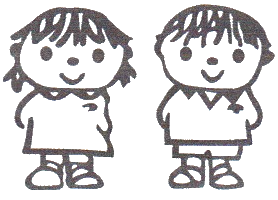Personal, Social and Emotional Development Policy
At Nelmes Pre-School we aim to provide all children with support and experiences, taking into consideration their age and developmental stage, which will help them feel good about themselves and others, and develop a positive disposition to learning – a ‘will try’ and ‘can do’ attitude.
We adhere to the curriculum guidance as set out in the Statutory Framework for the Early Years Foundation Stage, Sept. 2014 (DfE) which states “Personal, social and emotional development involves helping children to develop a positive sense of themselves, and others; to form positive relationships and develop respect for others; to develop social skills and learn how to manage their feelings; to understand appropriate behaviour in groups; and to have confidence in their own abilities.”
We believe that children’s personal, social and emotional development underpins all their learning, and aim to provide opportunities for children to effectively develop their personal, social and emotional skills through:
· respecting and celebrating differences of race, gender, needs and beliefs to promote a culture of understanding and tolerance
· recognising and valuing the experiences that all children bring from home and community and working in partnership with our families and carers to promote a shared understanding of children’s personal, social and emotional needs and development
· creating an environment that engenders a feeling of belonging where all children and their families and carers can feel safe, secure and able to trust the adults that support them
· enabling all children to become confident and independent learners who are able to persist and feel proud of their achievements
· helping all children to develop social skills and relationships based on cooperation and shared experiences
· role modelling and promoting positive behaviour, and being explicit in our expectations by setting consistent rules and boundaries.
The EYFS curriculum for PSED comprises the following aspects:
· Self-confidence and self-awareness: children are confident to try new activities and say why they like some more than others. They are confident to speak in a familiar group, will talk about their ideas, and will choose the resources they need for their chosen activities. They say when they do or don’t need help.
· Managing feelings and behaviour: children talk about how they and others show feelings, talk about their own and others’ behaviour and consequences, and know that some behaviour is unacceptable.
·They work as part of a group, and understand and follow the rules.
They adjust their behaviour to different situations, and take changes of routine in their stride.
· Making relationships: children play co-operatively, taking turns with others. They take account of one another’s ideas about how to organise their activity. They show sensitivity to others’ needs and feelings, and form positive relationships with adults and other children.
Our Practice aims to provide opportunities for all children to develop their
personal, social and emotional skills:
· We plan and organise a stimulating learning environment so that all children have the time and space to independently follow their own needs and interests, whether in a group or alone, supported by interested and interesting people.
· We plan challenging and achievable activities that meet the needs and interests of all children.
· Each child has a key person who is responsible for maintaining the child’s profile of progress and development, building constructive relationships with parents and carers and providing continuity.
· We proactively seek partnership with parents and carers, to support both their own child and the setting as a whole.
· We have consistent standards of behaviour that all adults use so children know what to expect from the adults in the setting.
· We role model behaviour and language that values differences and takes account of different needs and expectations.
· We provide opportunities and encouragement in daily routines for children to become independent and responsible for their own personal needs.
· We give praise and show appreciation of children’s achievements and efforts.
· We provide positive images of gender, ethnicity, language, religion, culture, special education needs and disabilities.
· We have, and will continue to develop strong relationships with outside agencies who support our families and children so that their input and advice is seen as beneficial to all staff, families and children as opposed to only being used when things go wrong.
· We evaluate the impact of our practice on children’s personal, social and emotional development as part of our school mentoring process.
Managing behaviour
We aim to nurture each child’s awareness of the impact that his or her actions might have upon others. Where a child is finding it difficult to show feelings in an appropriate way or is testing the boundaries of acceptable
behaviour, we will work with the families to ensure a consistent approach. Strategies that we use, taking into consideration at all times the age and developmental stage of the child, and at all times adhering to our Safeguarding Policy, are:
· We will challenge unacceptable behaviour, and support children to communicate and manage feelings of anger, frustration, disappointment or unhappiness.
· We will talk to children about how others feel and the consequences of their actions.
· We will proactively seek input from parents/carers and decide together on the best way to support the child.
· We will ensure that each adult who is helping the child knows the expectations, boundaries and consequences of actions that have been agreed with parents/carers, child and staff to give the child a feeling of security.
In order to manage unacceptable behaviour, we adopt strategies such as:
· Anticipating, distracting, and redirecting the child’s attention away from a conflict situation.
· Withdrawing a child away from an area or activity for a short period, and reflecting about the reason for withdrawal.
· Isolating the incident and taking away the ‘audience’.

